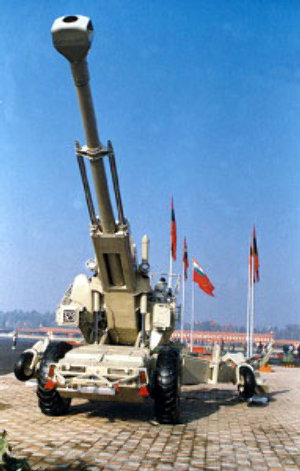Last week the CBI removed Italian businessman Ottavio Quattrochi from its wanted list, and removed the Interpol Red Corner notice against him. Prime Minister Manmohan Singh soon supported this decision saying that the case had become an embarrassment for the government.
“It is not a good reflection on the Indian legal system that we harass people while the world says we have no case”[link]
That’s pretty much a public apology from the great nation of India to a man who never was cleared of the corruption charges against him. Bend over Bow in subservience, India!
The thing is, the CBI hasn’t really done a great job with this case. Their attempts to get Quattrochi extradited to India were rejected in Malaysia and Argentina, with the judges noting that the CBI never presented its case properly.
Not saying anything, but this gives the impression that the CBI did a sham job at getting him extradited. Maybe someone didn’t want Quattrochi to come to India?

Let’s start with some history on the Bofors scandal, which remains till date one of the biggest scandals in Indian politics.
It all started when India decided to purchase 400 155mm Howitzers (fancy word for really-big-kickass-gun) from Swedish company Bofors AB for $1.4 billion in 1986.
In 1987 the then Prime Minister Rajiv Gandhi and several others were accused of receiving kickbacks for this deal.
Ottavio Quattrochi was a businessman close to the Gandhi family and a prominent man in the hallowed passages of Indian government. His name came up as the middleman in this deal.
The Bofors scandal was huge. Rajiv Gandhi lost the 1989 elections due to the backlash of these allegations.
Other accused included the Hinduja brothers and Win Chaddha, an agent of the Bofors company. (Hi! My name is win. I am here to win your contract!)
Chaddha died in 2001. Gandhi was assassinated in 1991, and was cleared of the corruption charges against him in 2004. In 2005, the charges against the Hinduja brothers were dismissed by the Delhi High court.
The Wikipedia page on Quattrochi throws up some interesting information about the amount of clout he used to enjoy.
From roughly 1980 to 1987 – Indira Gandhi’s final years and Rajiv Gandhi’s honeymoon years – Quattrocchi had the Midas touch. No deal was refused to him. “It was understood,” remembers a Congressman from the original Mrs G’s days, “that a fertiliser contract meant Snamprogetti. That was considered the favour to Sonia and Rajiv.” [link]
It is alleged Quattrocchi was so influential with the office of the prime minister — Rajiv Gandhi — that bureaucrats used to stand up when Quattrocchi visited them.[link]
In 2002 a Malaysian court refused extraditing Quattrochi to India, observing that the offenses alleged against him were open to doubt.
Dismissing India’s review petition for his extradition, Justice Augustine Paul of Kuala Lumpur High Court upheld the Sessions Court verdict earlier this month throwing out the extradition case on the ground that the descriptions of the offenses in the requisition papers were “insufficient, vague and ambiguous.” While discharging Quattrocchi unconditionally, the Sessions Court on December 2 had also ordered return of his passport and the bail. [link]
The CBI chief PC Sharma attributed the failure to the fact that they were in a foreign country and had to present the case through a foreign lawyer. Maybe they should start training multi-lingual Indian lawyers? Malaysian ones are apparently no good.
In December 2005 the Indian government de-froze Quattrochi’s bank accounts on grounds of insufficient evidence to link those accounts to the Bofors payoff. A month later the Supreme court directed the government to ensure that money was not withdrawn from those accounts. It was too late by then. Rs 21 crore ($4.6 mn) had already been withdrawn from the accounts.
Quattrochi was arrested in Argentina in February 2007. The CBI tried to get him extradited to India, but their plea was rejected by the Argentinian courts. The CBI had the option of appealing to a higher court, but it failed to get a clearance from the center. We wonder why that would be.
The judge noted that the CBI did not even present proper legal documents for Quattrochi’s extradition, which led to their request getting rejected. Besides, the Indian government’s decision to de-freeze Quattrochi’s bank accounts did not really add credence to their request. Watch a video report here.
Over more than two decades the case has dragged on like an Energizer bunny, with no end in sight. For some involved parties the case ended with death, some were cleared of charges, but the scandal lives on.
Strangely enough, you can’t attribute it all to the Congress. The Congress may have had an interest in this case, but we have had some non-Congress governments too during these past twenty years that have allowed this drama to carry on, culminating with Manmohan Singh’s government’s farewell gift to Mr Quattrochi.
Reminds us of that movie by the name of Jaane Bhi Do Yaaron. The last scene – where all the politicians (and media persons) get together to come up with a deal that gives them all a piece of the pie. The loser in the entire deal? The Common Man.
Our Prime Minister says that this case is an embarrassment to the government. We cant help wonder who the real embarrassment is.







0 comments:
Post a Comment